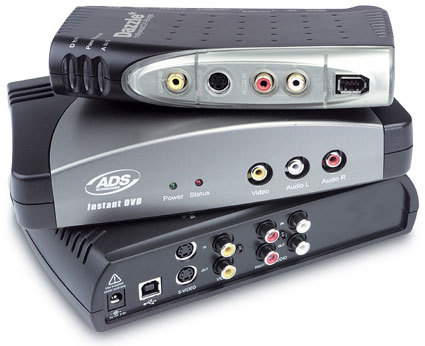Workshop: A Digital Facelift for Your Analog Movies
Get Tom's Hardware's best news and in-depth reviews, straight to your inbox.
You are now subscribed
Your newsletter sign-up was successful
Transferring Video Without Swamping Your CPU
If you want to convert Super-8 videos, you'll first have to record them from a screen using a DV camcorder. Every DV camcorder has a DV output port through which you can transfer the recorded video footage to your PC. The port has been designed to be bi-directional, i.e., it is both an input and an output port, unlike analog connectors.
DV converter boxes, which have FireWire and/ or USB interfaces, depending on the model, can also covert analog video footage into the digital DV format. You can also go in the other direction if you want. The higher the maximum data throughput of your converter box, the better quality your video capture will be. So when you buy a USB model, you should generally go with a product furnished with the USB 2.0 interface, which is 40 times faster. USB 1.1 converter boxes, such as the ADS USB Instant DVD, provide a maximum MPEG-2 data stream of about five megaBytes per second. While that may be enough to transfer VHS footage without any visible deterioration, the low data-transfer rate visibly worsens the video quality of DV movies. The USB 2.0 models, on the other hand (data-transfer rates of some ten megaBytes per second), such as the Adaptec AVC-2200, transmit DV streams without any perceptible loss in quality. Another advantage is that if you have PCI cards in all the slots in your PC, DV camcorders and converter boxes can act as external video capturing solutions.
DV converter boxes convert VHS videos internally, reducing the load on the CPU.
Web Addresses: PC Video
- www.virtualdub.org : Free video capturing and video-editing software
- shelob.mordor.net/dgraft : Free restoration filter for Virtual Dub
Get Tom's Hardware's best news and in-depth reviews, straight to your inbox.
Current page: Transferring Video Without Swamping Your CPU
Prev Page Digitizing VHS Movies On A Shoestring Next Page Picking The Right Codec And Program